C++基础语法总结
发布时间:2023年12月22日
C++使用
- C++的源文件扩展名是:cpp
- C++程序的入口是main函数
- C++完全兼容c语言的语法
1、cin、cout
- C++中常使用cin、cout进行控制台的输入和输出
#include <iostream>
using namespace std;
int main() {
cout << "hello world !!!" << endl;
return 0;
}
- cin用的是右移运算符 >> ,cout用的是左移运算符 <<
- endl是换行的意思
2、函数重载(overload)
-
规则
- 函数名相同
- 参数个数不同、参数类型不同、参数顺序不同
-
注意
- 返回值类型与函数重载无关
- 调用函数时,实参的隐式类型转换可能会产生二义性
-
本质
- 采用了name mangling或者叫name decoration的技术
- C++编译器默认会对符号名(比如函数名)进行改编、修饰、有些地方也叫做“命名倾轧”
- 重载时会生成多个不同的函数名,不同编译器(MSVC、g++)有不同的生成规则
- 通过IDA打开(VS_Release_禁止优化)可以看到
3、默认参数
- C++允许函数设置默认参数,在调用时可以根据情况省略实参,规则如下:
- 默认参数只能按照从右到左的顺序(即默认参数要写在参数列表的最后)
- 如果函数同时有声明、实现,默认参数只能放在函数声明中
- 默认参数的值可以是常量、全局符号(全局变量、函数名)
- 如果函数的实参 经常是同一个值,可以考虑使用默认参数
#include <iostream>
using namespace std;
const int age = 33;
void test();
void display(int a, int b = 22, int c = 33, void (*func)() = test);
void test() {
cout << "test()" << endl;
}
void display(int a, int b, int c, void (*func)()) {
cout << "a is : " << a << endl;
cout << "b is : " << b << endl;
cout << "c is : " << c << endl;
func();
}
int main() {
display(11);
return 0;
}
- 函数重载、默认参数可能会产生冲突、二义性(建议优先选择默认参数)
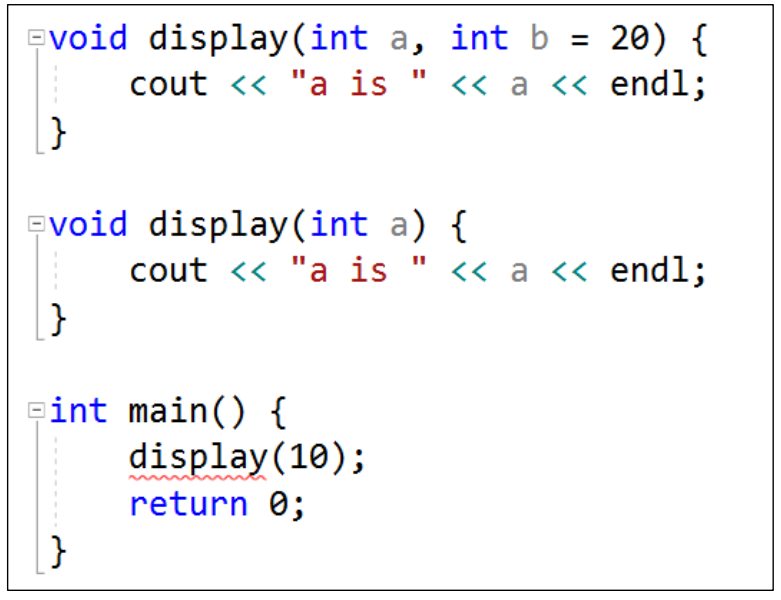
4、extern ‘‘C’’
-
被extern ‘’C’’ 的代码会按照C语言的方式去编译
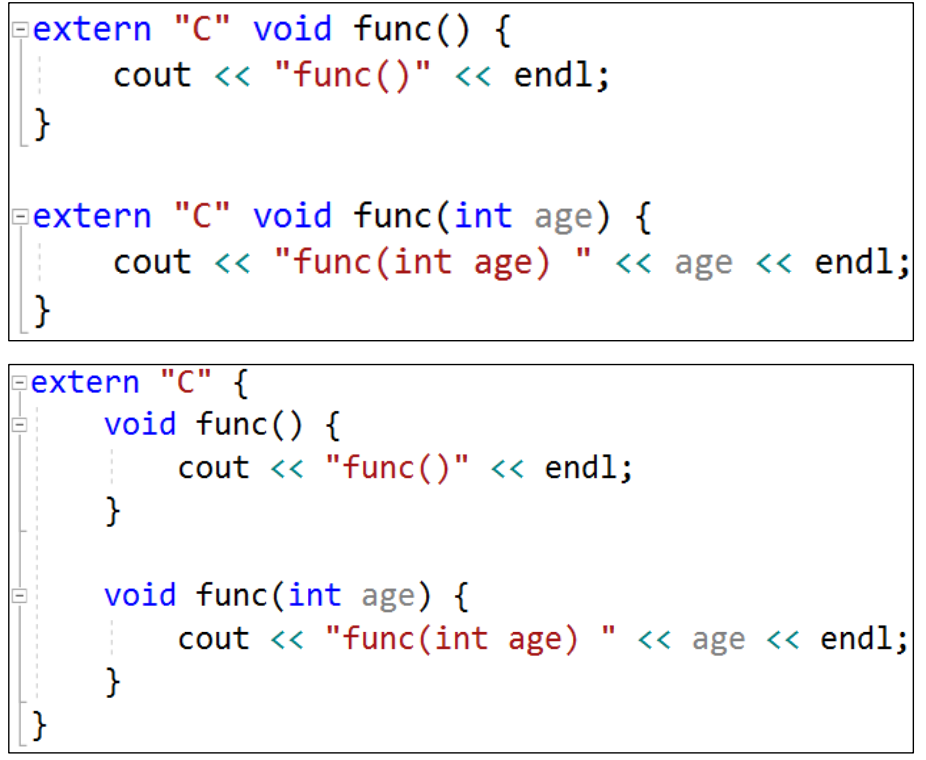
-
如果函数同时有声明和实现,要让函数声明被extern '‘C’'修饰,函数实现可以不修饰

-
由于C、C++编译规则不同,在C、C++混合开发时,可能会出现C++在调用C语言的API时,需要extern ‘‘C’’ 修饰C语言函数声明
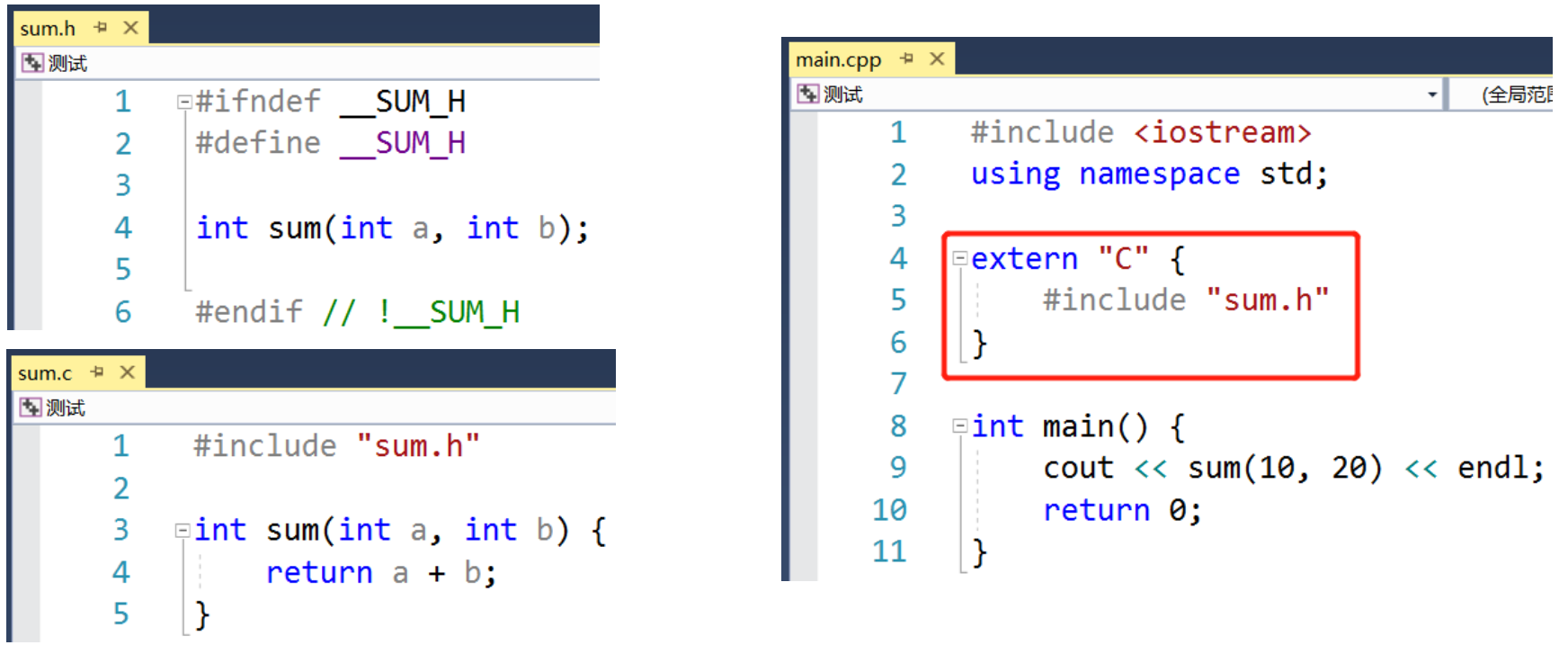
-
有时也会在编写C语言代码中直接适用extern ‘‘C’’,这样就可以直接被C++调用
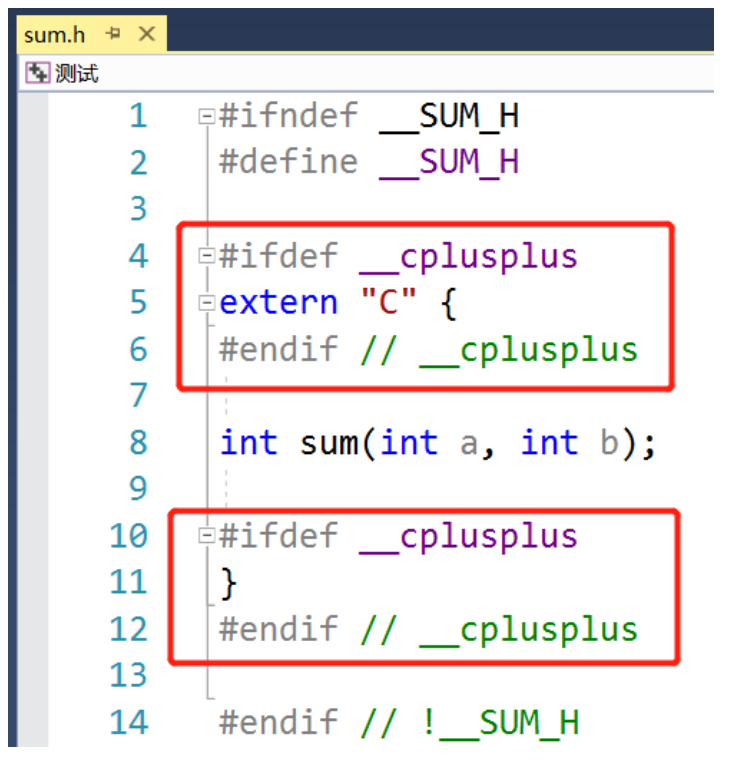
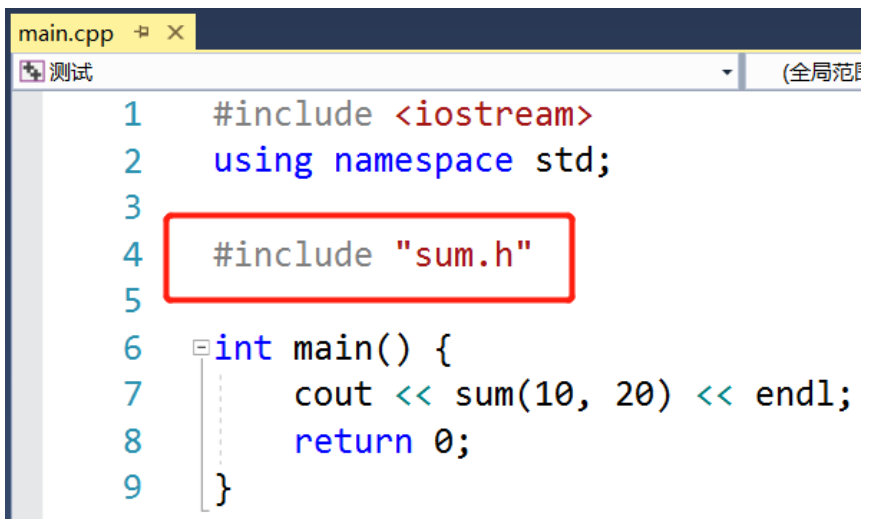
-
通过使用宏 __cplusplus来区分C、C++环境
5、#pragma once
- 我们经常使用#ifndef、#define、#endif来防止头文件的内容被重复包含
- #pragma once可以防止整个文件的内容被重复包含
- #ifndef、#define、#endif受C、C++标准的支持,不受编译器的任何限制
- 有些编译器不支持#pragma once(较老的编译器不支持,如GCC3.4版本之前),兼容性不够好
- #ifndef、#define、#endif可以针对一个文件中的部分代码,而#pragma once只能针对整个文件
6、内联函数(inline function)
- 适用inline修饰函数声明或者实现,可以使其编程内联函数(建议声明和实现都添加inline修饰)
- 特点
- 编译器会将函数调用直接展开为函数代码
- 可以减少函数调用的开销
- 会增大代码体积
- 注意
- 尽量不要内联超过10行代码的函数
- 有些函数即使声明为inline,也不一定会被编译器内联,比如递归函数
- 内联函数与宏的区别
- 内联函数和宏,都可以减少函数调用的开销
- 对比宏,内联函数多了语法检测和函数特性
7、表达式
- C++的有的表达式是可以被赋值的
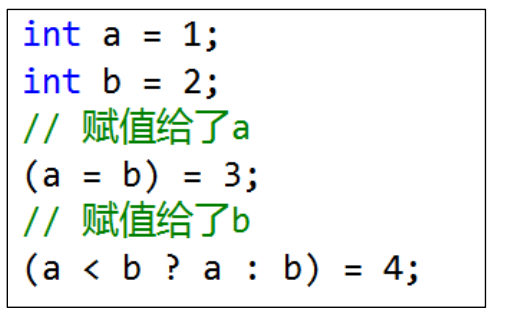
8、const
- const是常量的意思,被修饰的变量不可修改
- 如果修饰的是类、结构体(的指针),其成员也不可更改
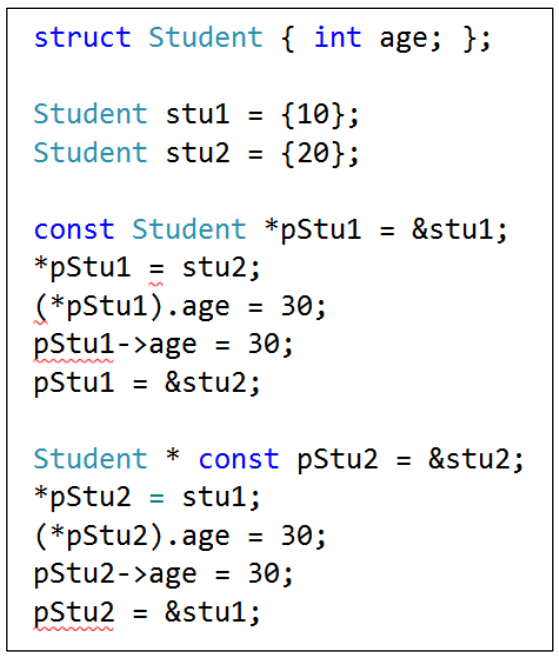
- const修饰的是其右边的内容
9、引用
- 在C语言中,适用指针可以间接获取、修改某个变量的值
- 在C++中,适用引用可以起到跟指针类似的功能
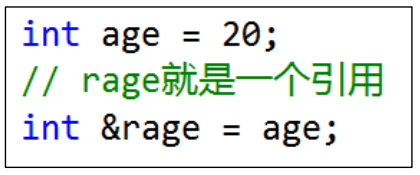
- 注意点
- 引用相当于变量的别名(基本数据类型、枚举、结构体、类、指针、数组等,都可以有引用)
- 对引用做计算,就是对引用所指向的变量做计算
- 在定义的时候就必须初始化,一旦指向了某个变量,就不可以再改变,“从一而终”
- 可以利用引用初始化另一个引用,相当于某个变量名的多个别名
- 不存在引用的引用,纸箱引用的指针,引用数组
- 引用存在的价值之一:比指针更安全、函数返回值可以被赋值
- 引用的本质是指针,只是编译器削弱了它的功能,所以引用就是弱化了的指针
- 一个引用占用一个指针的大小
10、常引用(Const reference)
- 引用可以被const修饰,这样就无法通过引用来修改数据了,可以称为常引用
- const 必须写在&符号的左边,才能算是常引用
- const引用的特点
- 可以指向临时数据(常量、表达式、函数返回值)
- 可以指向不同类型的数据
- 作为函数参数时(此规则也适用于const指针)
- 可以接受const和非const实参(非const引用,只能接受非const实参)
- 可以跟非const引用构成重载
- 当常引用指向了不同类型的数据时,会产生临时变量,即引用指向的并不是初始化时的那个变量
- 数组引用的两种常见写法

11、常用的汇编
- AT&T汇编 VS Intel汇编
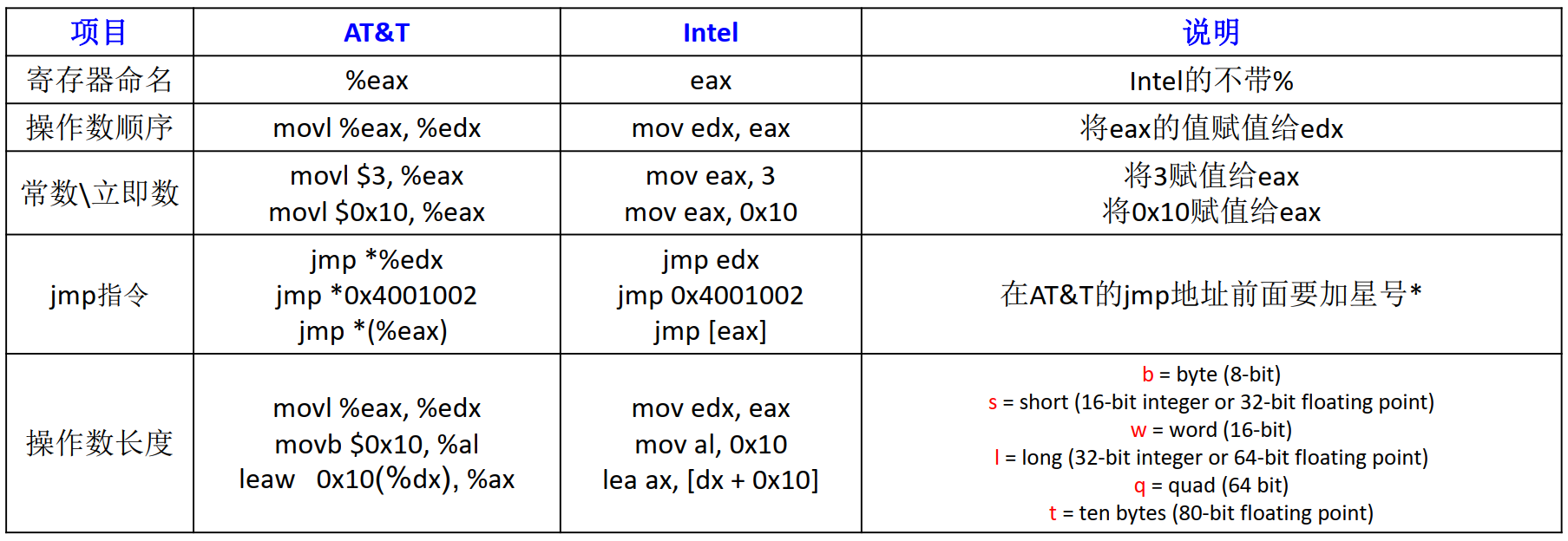
- x64汇编寄存器
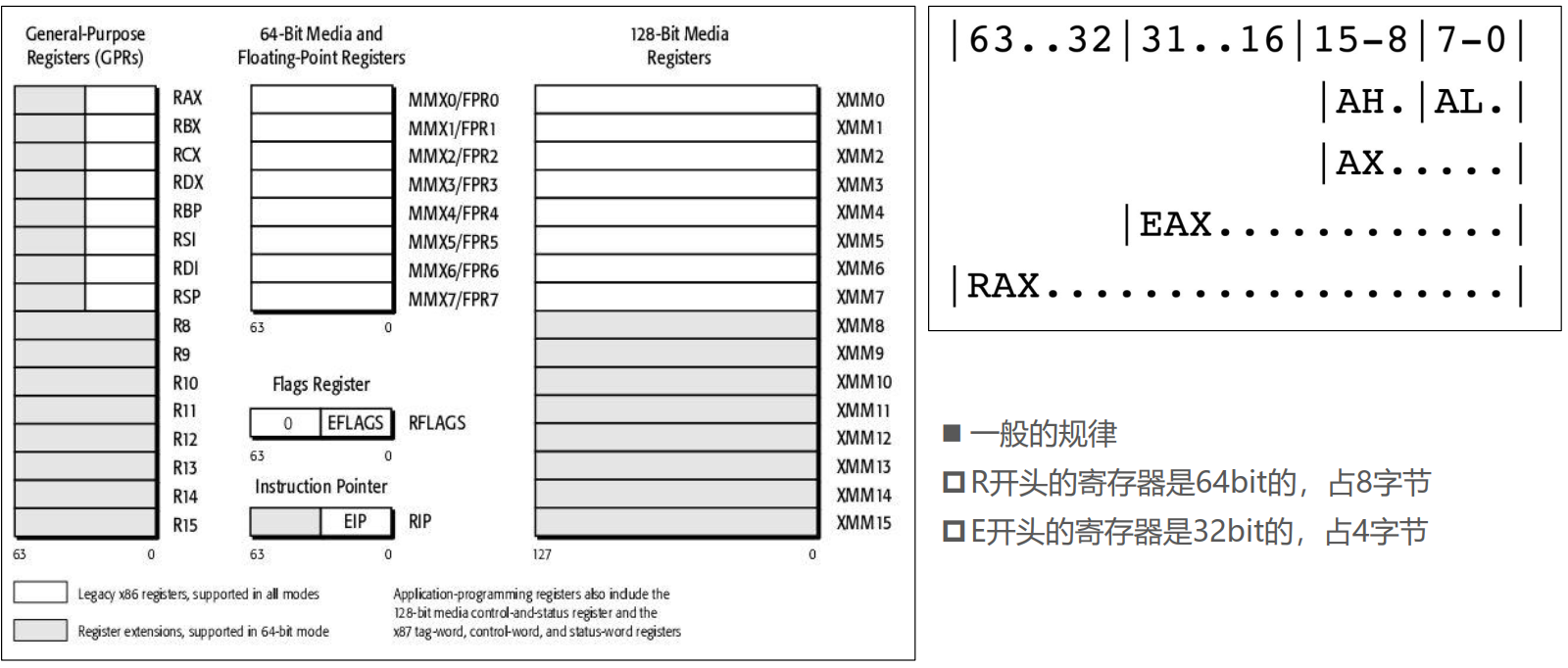
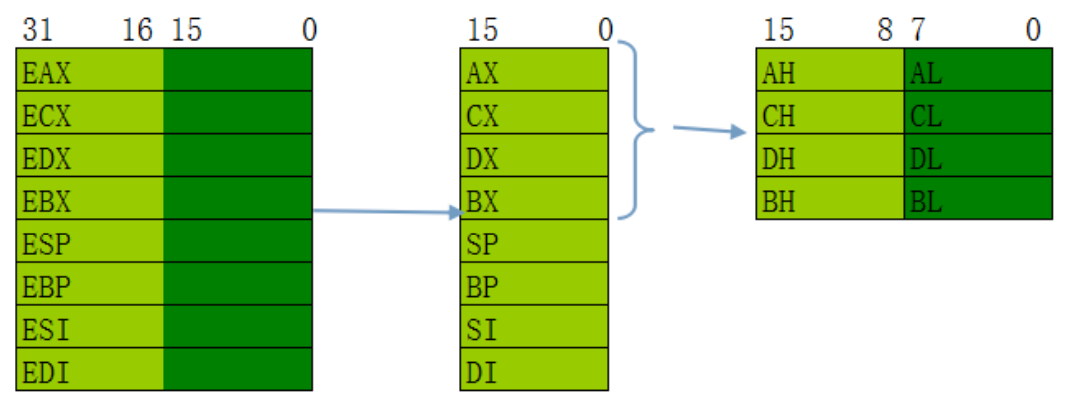
- x64汇编常用指令
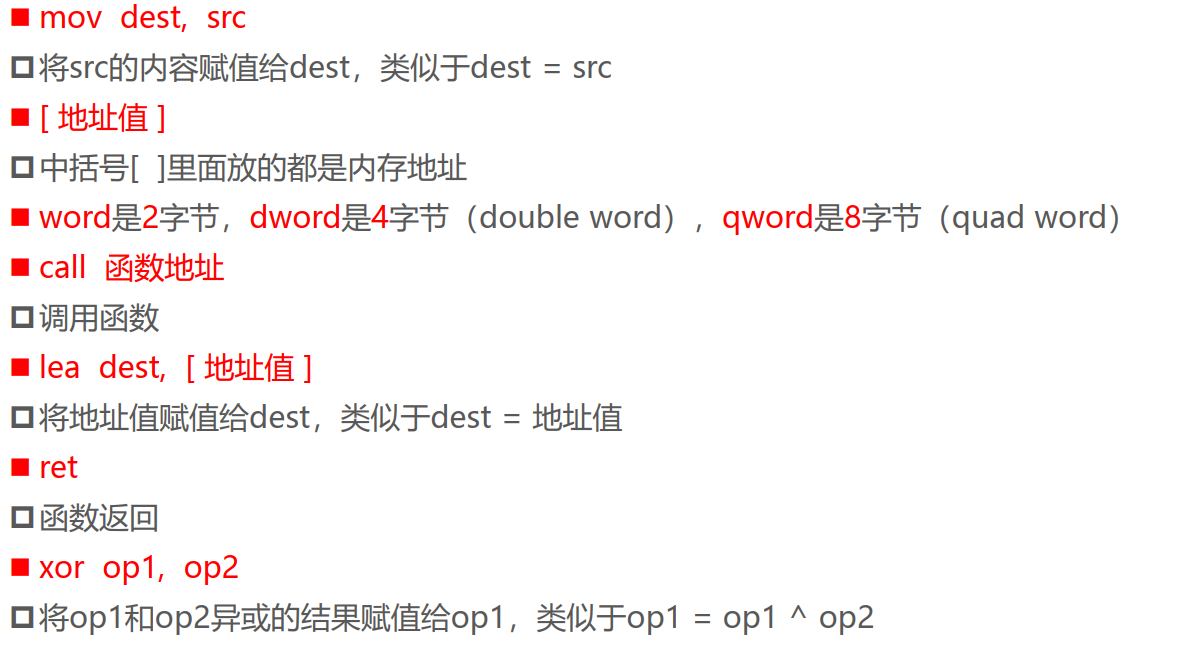
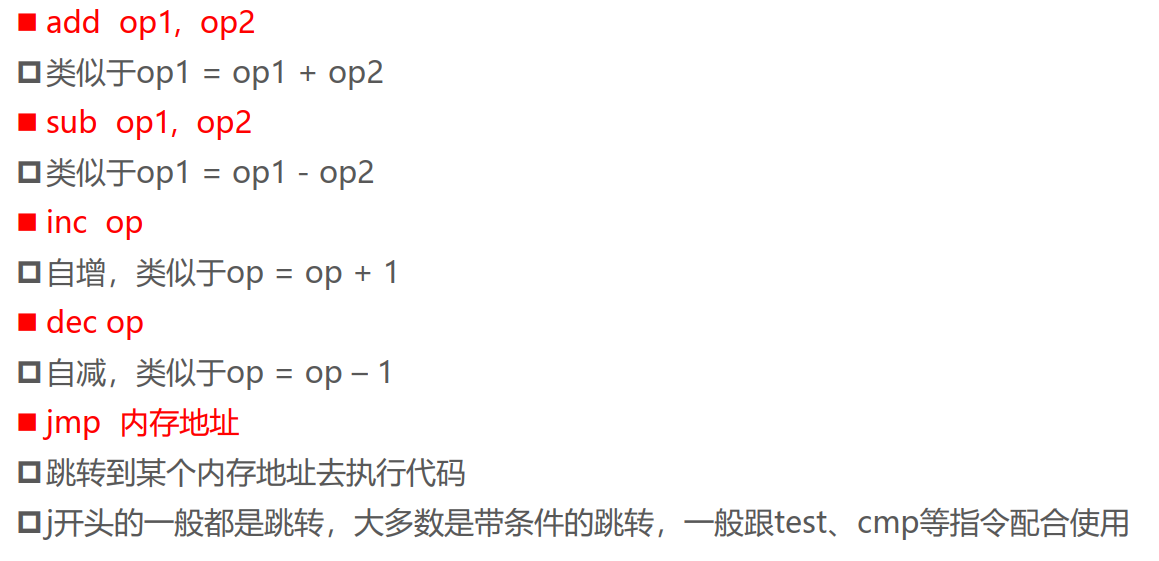
12、变量地址总结
- 一个变量的地址,是它所有字节地址中的最小值
文章来源:https://blog.csdn.net/u012559967/article/details/135146784
本文来自互联网用户投稿,该文观点仅代表作者本人,不代表本站立场。本站仅提供信息存储空间服务,不拥有所有权,不承担相关法律责任。 如若内容造成侵权/违法违规/事实不符,请联系我的编程经验分享网邮箱:chenni525@qq.com进行投诉反馈,一经查实,立即删除!
本文来自互联网用户投稿,该文观点仅代表作者本人,不代表本站立场。本站仅提供信息存储空间服务,不拥有所有权,不承担相关法律责任。 如若内容造成侵权/违法违规/事实不符,请联系我的编程经验分享网邮箱:chenni525@qq.com进行投诉反馈,一经查实,立即删除!
最新文章
- Python教程
- 深入理解 MySQL 中的 HAVING 关键字和聚合函数
- Qt之QChar编码(1)
- MyBatis入门基础篇
- 用Python脚本实现FFmpeg批量转换
- 利用gulp工具对常规web项目进行压缩打包
- 【12.20】转行小白历险记 json server的高级用法
- 【C++】union
- 自动化网络故障修复管理
- 多表查询练习
- stm32 FOC系列 直流有刷控制原理
- B3700 [语言月赛202301] 九九乘方表
- 【论文阅读】ControlNet、文章作者 github 上的 discussions
- 用Growly Draw for Mac,释放您的创意绘画天赋!
- 正则表达式和爬虫